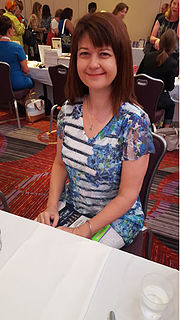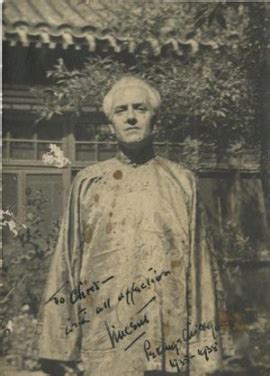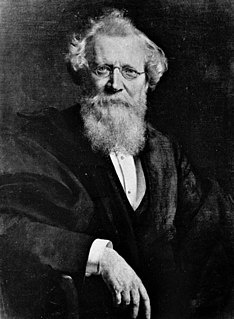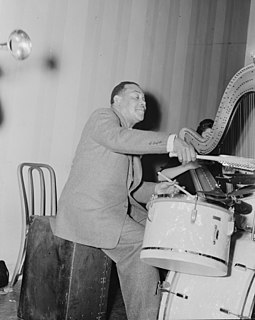Top 780 Coal Quotes & Sayings - Page 13
Explore popular Coal quotes.
Last updated on December 23, 2024.
Right now, I see a lot of alarming trends inside Russia, especially in Siberia, which I represent in the parliament. People start to ask questions: If we mine all the natural resources - if we have all the oil, all the gas, all the coal, all the gold, all the diamonds - why the hell do we need central Russia? They are just eating at our resources. Without Moscow having a response for this, it would face very nasty questions such as one that was asked during my recent reelection campaign - it actually became a slogan of my campaign - "Stop feeding Moscow."
In short, what the living wage is really about is not living standards, or even economics, but morality. Its advocates are basically opposed to the idea that wages are a market price-determined by supply and demand, the same as the price of apples or coal. And it is for that reason, rather than the practical details, that the broader political movement of which the demand for a living wage is the leading edge is ultimately doomed to failure: For the amorality of the market economy is part of its essence, and cannot be legislated away.
My father was a mailman. His father was a coal miner. My mother's mother could barely speak English. And their son today stands on this podium in the great state of Ohio not only as the governor, but a candidate for president of the United States.I do believe in miracles.I've had a lot of elections. But my elections are really not about campaigns. I tell my people that these are about a movement.A movement to do things like provide economic growth. And a movement not to let anybody be behind.
It is true that building a green economy will not be good for everyone's jobs. Notably, people working in the fossil fuel industry will face major job losses. The communities in which these jobs are concentrated will also face significant losses. But the solution here is straightforward: Just Transition policies for the workers, families and communities who will be hurt as the coal, oil and natural gas industries necessarily contract to zero over roughly the next 30 years.
To restore our inflamed atmosphere to a hospitable state requires nothing less than rewiring the entire globe - and replace every oil-burning furnace, every gasoline-burning car, every coal-burning generating plant, with renewable, climate-friendly energy sources. The earth's fossil fuel resources have blessed us with a level of prosperity and abundance unimaginable a century ago. Today they are propelling us forward into a century of disintegration.
We need a firm cap on carbon emissions from fossil fuels. No coal, oil, or gas could enter the economy until the buyer had a permit. All permits would be auctioned by the federal government, and the number of permits auctioned would be decreased by three percent per year. Permits could be traded, but they could not be created out of whole cloth by companies that plant forests or dump iron filings at sea.
For every nineteenth-century middle-class family that protected its wife and child within the family circle, there was an Irish ora German girl scrubbing floors in that home, a Welsh boy mining coal to keep the home-baked goodies warm, a black girl doing the family laundry, a black mother and child picking cotton to be made into clothes for the family, and a Jewish or an Italian daughter in a sweatshop making "ladies" dresses or artificial flowers for the family to purchase.
So many humans. So many colours. They keep triggering inside me. They harass my memory. I see them tall in their heaps, all mounted on top of each other. There is air like plastic, a horizon like setting glue. There are skies manufactured by people, punctured and leaking, and there are soft, coal-coloured clouds, beating, like black hearts. And then. There is death. Making his way through all of it. On the surface: unflappable, unwavering. Below: unnerved, untied, and undone.
Scientists had said, "If you keep burning coal and gas and oil, you will melt the Arctic." And then the Arctic melted just as they had predicted. Did Shell Oil look at the melt and say, "Huh, maybe we should go into the solar-panel business instead?" No, Shell Oil looked at that and said, "Oh, well, now that it's melted it will be easier to drill for more oil up there." That's enough to make you doubt about the big brain being a good adaptation.
Jesus lost all his glory so that we could be clothed in it. He was shut out so we could get access. He was bound, nailed, so that we could be free. He was cast out so we could approach. And Jesus took away the only kind of suffering that can really destroy you: that is being cast away from God. He took so that now all suffering that comes into your life will only make you great. A lump of coal under pressure becomes a diamond. And the suffering of a person in Christ only turns you into somebody gorgeous.
This curious faith is predicated on the notion that we will soon develop unlimited new sources of energy: domestic oil fields, shale oil, gasified coal, nuclear power, solar energy, and so on. This is fantastical because the basic cause of the energy crisis is not scarcity: it is moral ignorance and weakness of character. We don't know how to use energy or what to use it for. And we cannot restrain ourselves. Our time is characterized as much by the abuse and waste of human energy as it is by the abuse and waste of fossil fuel energy.
We've continued progress in the six months since Trump got elected, and the good thing about what we're doing is that success begets success. As we bring down greenhouse gases, for example, we've closed half of the coal-fired power plants in the country in recent years. There's more impetus to try to close the other half because you can see that it is working. So, you know, I had hoped that Trump would not do that, and it doesn't make any sense to me, but regardless, it is not as cataclysmic as it could be.
By his machines man can dive and remain under water like a shark; can fly like a hawk in the air; can see atoms like a gnat; can see the system of the universe of Uriel, the angel of the sun; can carry whatever loads a ton of coal can lift; can knock down cities with his fist of gunpowder; can recover the history of his race by the medals which the deluge, and every creature, civil or savage or brute, has involuntarily dropped of its existence; and divine the future possibility of the planet and its inhabitants by his perception of laws of nature.
He looked at the little maiden, and she looked at him; and he felt that he was melting away, but he still managed to keep himself erect, shouldering his gun bravely. A door was suddenly opened, the draught caught the little dancer and she fluttered like a sylph, straight into the fire, to the soldier, blazed up and was gone! By this time the soldier was reduced to a mere lump, and when the maid took away the ashes next morning she found him, in the shape of a small tin heart. All that was left of the dancer was her spangle, and that was burnt as black as a coal.
I heard more of the stories from my mother and my granny and my aunts that would describe what they had known that he didn't often talk about. I remember seeing [grandfather] as a child. He was working in a mine that was fairly close to their home there in Betsy Lane, Ky., and it was so close in proximity that he wouldn't clean up or shower there. He would just drive back home. And I remember one time seeing him come in and it was like seeing an alien person show up because he was still covered in coal dust and soot, and it had a profound impact on me.
He is very fond of me, almost too fond. I could do with less caressing and more rationality. I should like to be less of a pet and more of a friend, if I might choose; but I won't complain of that: I am only afraid his affection loses in depth where it gains in ardour. I sometimes liken it to a fire of dry twigs and branches compared with one of solid coal, very bright and hot; but if it should burn itself out and leave nothing but ashes behind.
If the Treasury were to fill old bottles with bank-notes, bury them at suitable depths in disused coal-mines which are then filled up to the surface with town rubbish, and leave it to private enterprise on well-tried principles of laissez-faire to dig the notes up again (the right to do so being obtained, of course, by tendering for leases of the note-bearing territory), there need be no more unemployment and, with the help of repercussions, the real income of the community, and its capital wealth, would probably become a good deal greater than it actually is.
I don't know (and I guess I never will while I'm alive) just how thick my old skull is, but I do know that it is pretty thick, or it would have been cracked many years ago, for I have been struck some terrible blows on my head with iron dray-pins, pokers, clubs, stone-coal, and bowlders, which would have split any man's skull wide open unless it was pretty thick. Doctors have often told me that my skull was nearly an inch in thickness over my forehead.
Like a battalion of marines at roll call, her neck hairs marshaled to five-alarm status. She stumbled back to her desk, jerked open the botton drawer, retrieved a pair of Nighthawk binoculars, fixed the scopes on him, and fiddled with the focus. Gotcha. Hair the colour of coal. Chocolate brown eyes. A five-o'clock shadow ringing his craggy jawline. Handsome as the day was long... He sauntered towards her, oozing charisma from every pore. Charlee forgot to breathe. And then he committed the gravest sin of all, knocking her world helter-skelter. The scoundrel smiled.
What beauty. I saw clouds and their light shadows on the distant dear earth.... The water looked like darkish, slightly gleaming spots.... When I watched the horizon, I saw the abrupt, contrasting transition from the earth's light-colored surface to the absolutely black sky. I enjoyed the rich color spectrum of the earth. It is surrounded by a light blue aureole that gradually darkens, becoming turquiose, dark blue, violet, and finally coal black.
I, for one, despite being a pretty solid climate hawk, I am extremely sympathetic to West Virginia and its coal-country needs. I lived there for a year. I've seen it. And the same for Wyoming, Ohio, Pennsylvania, Kentucky. They all have parts of their state where that really matters. And I think that home-state constituency issue is a pretty constant one. And I think the problem of extreme lobbying by the corporate sector, which runs about $30-to-$1 compared to everybody else in the world, and the constituent aspect combines to give those industries a consistent advantage.
And again it snowed, and again the sun came out. In the mornings on the way to the station Franklin counted the new snowmen that had sprung up mysteriously overnight or the old ones that had been stricken with disease and lay cracked apart-a head here, a broken body and three lumps of coal there-and one day he looked up from a piece of snow-colored rice paper and knew he was done. It was as simple as that: you bent over your work night after night, and one day you were done. Snow still lay in dirty streaks on the ground but clusters of yellow-green flowers hung from the sugar maples.
O marvelous Sacrament! How can I find words to praise you! You are the life of the soul, the medicament healing our wounds, our comforter when we are overburdened, the memorial of Jesus Christ, the proof of his love, the most precious precept of his testament, our companion in the pilgrimage of life, the joy sustaining us in our exile, the burning coal kindling the fire of divine love, the instrument of grace, the pledge of eternal bliss and the treasure of Christians
Variable but forecastable renewables (wind and solar cells) are very reliable when integrated with each other, existing supplies and demand. For example, three German states were more than 30 percent wind-powered in 2007 - and more than 100 percent in some months. Mostly renewable power generally needs less backup than utilities already bought to combat big coal and nuclear plants' intermittence.
But there can be no grave for Sherlock Holmes and Doctor Watson...Shall they not always live in Baker Street? Are they not there this moment, as one writes? Outside, the hansoms rattle through the rain, and Moriarty plans his latest devilry. Within, the sea-coal flames upon the hearth and Holmes and Watson take their well-won case...So they still live for all that love them well; in a romantic chamber of the heart, in a nostalgic country of the mind, where it is always 1895.
The misconception that there is serious disagreement among scientists about global warming is actually an illusion that has been deliberately fostered by a relatively small but extremely well-funded cadre of special interests, including Exxon Mobil and a few other oil, coal, and utilities companies. These companies want to prevent any new policies that would interfere with their current business plans that rely on the massive unrestrained dumping of global warming pollution into the Earth's atmosphere every hour of every day.
A lot of lies and misinformation has been put about by eco nuts on the back of a report by an idiot economist [Sir Nicholas Stern]. Environmental head bangers are talking nonsense when they claim that aviation is the fastest-growing source of carbon emissions. Coal-fired and oil-fired power stations are the biggest contributor of carbon but I have yet to hear any fearless eco warriors advocating nuclear power as they drive around in their SUVs to their next protest meeting.
Whenever calamity howlers shake their heads and impress upon you that this, that, and the next dire catastrophe is to befall this nation or the nations of the world-such as, for example, that exhaustion of the world's oil supply will bring all transportation and machinery to a standstill through lack of lubrication, or that exhaustion of the earth's stores of coal will make life unlivable in these cold climates-just smile and reply that the worst troubles of all are those that never happen [and] that you prefer not to cross shaky bridges until you come to them.
...We may encounter many defeats, but we must not be defeated. That sounds goody two-shoes, I know, but I believe that a diamond is the result of extreme pressure and time. Less time is crystal. Less than that is coal. Less than that is fossilized leaves. Less than that it's just plain dirt. In all my work, in the movies I write, the lyrics the poetry, the prose, the essays, I am saying that we may encounter many defeats - maybe it's imperative that we encounter the defeats - but we are much stronger than we appear to be and maybe much better than we allow ourselves to be.
A hound it was, an enormous coal-black hound, but not such a hound as mortal eyes have ever seen. Fire burst from its open mouth, its eyes glowed with a smouldering glare, its muzzle and hackles and dewlap were outlined in flickering flame. Never in the delirious dream of a disordered brain could anything more savage, more appalling, more hellish be conceived than that dark form and savage face which broke upon us out of the wall of fog.
We're headed for what is called Type 1 Civilization, planetary civilization. Type 2 would be stellar civilization, like Star Trek. Type 3 Civilization would be galactic, like Star Wars. We are Type 0. We get our energy from dead plants, oil and coal. But the question is: Will we make it? Will we make the transition from Type 0 to Type 1? It's not clear.
I report the assault on nature evidenced in coal mining that tears the tops off mountains and dumps them into rivers, sacrificing the health and lives of those in the river valleys to short-term profit, and I see a link between that process and the stock-market frenzy which scorns long-term investments-genuine savings-in favor of quick turnovers and speculative bubbles whose inevitable bursting leaves insiders with stuffed pockets and millions of small stockholders, pensioners, and employees out of work, out of luck, and out of hope.
It's hard to try to be a canary in the coal mine in Internet because right now we're enjoying such innovation. But at the same time, we are truly in the midst of a sea change in how controllable the technology we use day by day is, and it is getting more and more controllable by a distinct group of entities, who may have our best interests in mind, at least at consumers right now, but they can change their minds or be regulated, forced to change their minds later.
For when asceticism was carried out of monastic cells into everyday life, and began to dominate worldly morality, it did its part in building the tremendous cosmos of the modern economic order. This order is now bound to the technical and economic conditions of machine production which to-day determine the lives of all the individuals who are born into this mechanism, not only those directly concerned with economic acquisition, with irresistible force. Perhaps it will so determine them until the last ton of fossilized coal is burnt.
Canada, at the moment, is going through a Lord of the Rings moment. Having been a lowly Hobbit with furry feet and fun parties, with fireworks and beer, it has now been handed the Ring of Power: a large supply of fossil fuel, in the form of oil/tar sand and coal. Will it shrivel into an evil RingWraith? Will it become an addicted Golum? Will it refuse the Ring, like Galadriel, fearful of what So Much Power (in both senses of the word) will do to its inner being? Will it try to deal with the Ring responsibly, like Gandalf? Will it side with the Ents?
You cannot just depend on the market, because the market will say: China needs oil; China needs coal; China needs whatever, and Africa has got all these things in abundance. And we go there and get them, and the more we develop the Chinese economy, the larger the manufacturing is, the more we need global markets - sell it to the Africans which indeed might very well destroy whatever infant industries are trying to develop on the continent. That is what the market would do.
Instead of disbursing her annual millions for these dye stuffs, England will, beyond question, at no distant day become herself the greatest coloring producing country in the world; nay, by the very strangest of revolutions she may ere long send her coal-derived blues to indigo-growing India, her tar-distilled crimson to cochineal-producing Mexico, and her fossil substitutes for quercitron and safflower to China, Japan and the other countries whence these articles are now derived.
If there is a regulation that says you have to do something-whether it be putting in seat belts, catalytic converters, clean air for coal plants, clean water-the first tack that the lawyers use, among others things, and that companies use, is that it's going to drive the electricity bill up, drive the cost of cars up, drive everything up. It repeatedly has been demonstrated that once the engineers start thinking about it, it's actually far less than the original estimates. We should remember that when we hear this again, because you will hear it again.
In Middle America men are awakening. Like awkward and untrained boys we begin to turn toward maturity and with our awakening we hunger for song. But in our towns and fields there are few memory haunted places. Here we stand in roaring city streets, on steaming coal heaps, in the shadow of factories from which come only the grinding roar of machines. We do not sing but mutter in the darkness. Our lips are cracked with dust and with the heat of furnaces. We but mutter and feel our way toward the promise of song.
It was the forty-fathom slumber that clears the soul and eye and heart, and sends you to breakfast ravening. They emptied a big tin dish of juicy fragments of fish- the blood-ends the cook had collected overnight. They cleaned up the plates and pans of the elder mess, who were out fishing, sliced pork for the midday meal, swabbed down the foc'sle, filled the lamps, drew coal and water for the cook, an investigated the fore-hold, where the boat's stores were stacked. It was another perfect day - soft, mild and clear; and Harvey breathed to the very bottom of his lungs.
Until the dead are buried they change somewhat in appearance each day. The color change in Caucasian races is from white to yellow, to yellow-green, to black. If left long enough in the heat the flesh comes to resemble coal-tar, especially where it has been broken or torn, and it has quite a visible tarlike iridescence. The dead grow larger each day until sometimes they become quite too big for their uniforms, filling these until they seem blown tight enough to burst. The individual members may increase in girth to an unbelievable extent and faces fill as taut and globular as balloons.
Tie your heart at night to mine, love, and both will defeat the darkness like twin drums beating in the forest against the heavy wall of wet leaves. Night crossing: black coal of dream that cuts the thread of earthly orbs with the punctuality of a headlong train that pulls cold stone and shadow endlessly. Love, because of it, tie me to a purer movement, to the grip on life that beats in your breast, with the wings of a submerged swan, So that our dream might reply to the sky's questioning stars with one key, one door closed to shadow.
Iron and coal dominated everywhere, from grey to black: the black boots, the black stove-pipe hat, the black coach or carriage, the black iron frame of the hearth, the black cooking pots and pans and stoves. Was it a mourning? Was it protective coloration? Was it mere depression of the senses? No matter what the original color of the paleotechnic milieu might be it was soon reduced by reason of the soot and cinders that accompanied its activities, to its characteristic tones, grey, dirty-brown, black.
You see, women are like fires, like flames. Some women are like candles, bright and friendly. Some are like single sparks, or embers, like fireflies for chasing on summer nights. Some are like campfires, all light and heat for a night and willing to be left after. Some women are like hearthfires, not much to look at but underneath they are all warm red coal that burns a long, long while.
Take an arrow, and hold it in flame for the space of ten pulses, and when it cometh forth you shall find those parts of the arrow which were on the outsides of the flame more burned, blacked, and turned almost to coal, whereas the midst of the flame will be as if the fire had scarce touched it. This is an instance of great consequence for the discovery of the nature of flame; and sheweth manifestly, that flame burneth more violently towards the sides than in the midst.
Their bodies will be raised from the dead as vessels for the soul-vessels of wrath. The soul will breathe hell-fire, and smoke and coal will seem to hang upon its burning lips, yea the face, eyes, and ears will seem to be chimneys and vents for the flame, and the smoke of the burning , which God, by His breath, hath kindled therein, and upon, them, which will be held one in another, to the great torment and distress of each other.
There were so many bands in New Orleans. But most of the musicians had day jobs, you know -- trades. They were bricklayers and carpenters and cigar makers and plasterers. Some had little businesses of their own -- coal and wood and vegetable stores. Some worked on the cotton exchange and some were porters. They had to work at other trades 'cause there were so many musicians, so many bands. It was the most musical town in the country.
Listen to th' wind wutherin' round the house," she said. "You could bare stand up on the moor if you was out on it tonight." Mary did not know what "wutherin'" meant until she listened, and then she understood. It must mean that hollow shuddering sort of roar which rushed round and round the house, as if the giant no one could see were buffeting it and beating at the walls and windows to try to break in. But one knew he could not get in, and somehow it made one feel very safe and warm inside a room with a red coal fire.
When the Industrial Revolution started, the amount of carbon sitting underneath Britain in the form of coal was as big as the amount of carbon sitting under Saudi Arabia in the form of oil, and this carbon powered the Industrial Revolution, it put the 'Great' in Great Britain, and led to Britain's temporary world domination.
Hell is hot, fire. But I tell you, you are providing your own coal. This is how things are: If you move against nature you will be in misery. Misery means moving against nature, and misery is a good indication - if you understand. It shows that somewhere you are going wrong, that's all. Put things right! Misery is a help. Anguish, anxiety, tension, are indications that somewhere something is going wrong. You are not with the total. Somewhere you have started your own private movement - and then you will be in misery.
Coal, oil and gas are called fossil fuels, because they are mostly made of the fossil remains of beings from long ago. The chemical energy within them is a kind of stored sunlight originally accumulated by ancient plants. Our civilization runs by burning the remains of humble creatures who inhabited the Earth hundreds of millions of years before the first humans came on the scene. Like some ghastly cannibal cult, we subsist on the dead bodies of our ancestors and distant relatives. - Dr. Carl Sagan
We can decide that the presence of cancer-causing substances in our air, water, and food is too expensive. A 2009 study, for example, has found that coal miners in Appalachia costs the region five times more in premature deaths, including from cancer, than it provides to the region in jobs, taxes, and economic benefits. In California, the production and use of hazardous chemicals cost the state $2.6 billion in 2004 alone in lost wages and health-care expenses to treat workers and children with pollution-linked diseases.
That country where it is always turning late in the year. That country where the hills are fog and the rivers are mist; where noons go quickly, dusks and twilights linger, and midnights stay. That country composed in the main of cellars, sub-cellars, coal-bins, closets, attics, and pantries faced away from the sun. That country whose people are autumn people, thinking only autumn thoughts. Whose people passing at night on the empty walks sound like rain.
All I want is a room somewhere, far away from the cold night air. With one enormous chair; Oh wouldn't it be loverly? Lots of choc'late for me to eat; Lots of coal makin' lots of heat. Warm face, warm 'ands, warm feet, Oh wouldn't it be loverly? Oh, so loverly sittin' abso-bloomin'-lutely still! I would never budge 'til spring crept over my window sill. Someone's head restin' on my knee; Warm and tender as he can be, who takes good care of me; Oh wouldn't it be loverly? Loverly, loverly, loverly, loverly.
There's no free lunch. If you want an industrial economy, you need energy. If you want energy, it will produce pollution. You can have it in two forms. You can have it dissipated in the atmosphere - like carbon dioxide - which then you cannot recover, or you can have the waste concentrated in one small space like nuclear. That is far easier to deal with. The idea that you can be able to create renewable energy at a price anywhere near the current price for oil or gas or coal is a fantasy.
Kids don't have a little brother working in the coal mine, they don't have a little sister coughing her lungs out in the looms of the big mill towns of the Northeast. Why? Because we organized; we broke the back of the sweatshops in this country; we have child labor laws. Those were not benevolent gifts from enlightened management. They were fought for, they were bled for, they were died for by working people, by people like us. Kids ought to know that.
Give me a hot coal glowing bright red, Give me an ember sizzling with heat, These are the jewels made from my beak. We fly between the flames and never get singed We plunge through the smoke and never cringe. The secrets of fire, its strange winds, its rages, We know it all as it rampages Through forests, through canyons, Up hillsides and down. We track it. We'll find it. Take coals by the pound. We'll yarp in the heart of the hottest flame Then bring back its coals an make them tame. For we are the colliers brave and beyond all We are the owls of the colliering chaw!
I know we need more nuclear power in order - nuclear power, after all, is not dependent on fossil fuels and emits no greenhouse gases. I believe we're going to be able to have coal-fired plants that have zero emissions. We need to work on carbon sequestration technologies. I mean, there's a lot we can do together and achieve the objective, which a lot of people want, which is the reduction of greenhouse gases, and at the same time, have viable economic growth.
Yes, I heard my people singing!-in the glow of parlor coal-stove and on summer porches sweet with lilac air, from choir loft and Sunday morning pews-and my soul was filled with their harmonies. Then, too, I heard these songs in the very sermons of my father, for in the Negro's speech there is much of the phrasing and rhythms of folk-song. The great, soaring gospels we love are merely sermons that are sung; and as we thrill to such gifted gospel singers as Mahalia Jackson, we hear the rhythmic eloquence of our preachers, so many of whom, like my father, are masters of poetic speech.



























































